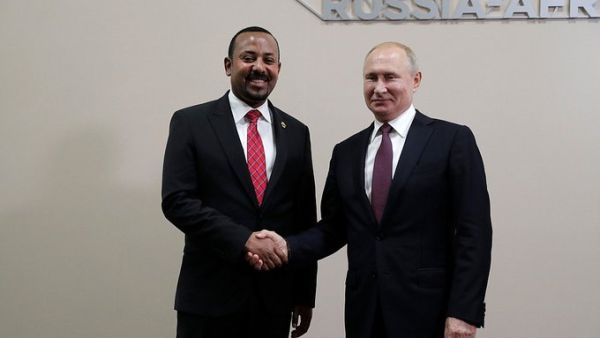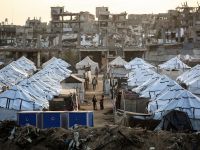On the eve of the Russia-Africa summit in Sochi this week, Rwandan officials approved a deal with Russia to advance the use of nuclear energy.
The deal was first signed last December in Moscow, which was the roadmap for the Inter-Governmental Agreement on the use of nuclear energy.
Finally, the Russian state-owned Rosatom Global nuclear company reached an agreement in May to set up the nuclear plant by 2024.
Based on the agreement, a Centre for Nuclear Science and Technology and a nuclear power plant in Rwanda will be built in Kigali by Russian scientists. This will facilitate experiments and scientific research.
{"preview_thumbnail":"https://cdn.flowplayer.com/6684a05f-6468-4ecd-87d5-a748773282a3/i/v-i-5…","video_id":"5c326bbd-3eec-41c6-80c9-dac93036e1cc","player_id":"8ca46225-42a2-4245-9c20-7850ae937431","provider":"flowplayer","video":"US Tells Ankara to Explain 'War Crimes' of Turkey's Invasion of Syria"}
The agreement underpins the legal cornerstone for extensive collaboration between Rwanda and Russia in terms of the construction projects.
It outlines a legal basis for interaction between Rwanda and Russia in a number of fields including the regulation of nuclear safety, the development of nuclear infrastructure in line with international requirements, training and development of specialists for the nuclear industry, supervision of the accounting and control of nuclear and radiation materials and radioactive waste.
Russia's footprint on the continent of Africa goes back to the Soviet era when it held an outsize influence before its power faded economically and politically during the Cold War.
Currently, Russia conducts more trade with Asia and Europe than Africa. During this same period India, China and the US have been the big players in Sub-Saharan Africa and even the EU, Japan and the US have invested more when compared with Russia.
However, Russian President Vladimir Putin stated that it’s Russia’s priority to strengthen relations with African countries.
During an interview with TASS Russian State News Agency he said: “This is not accidental, as Africa increasingly becomes a continent of opportunities. It possesses vast resources and potential economic attractiveness.”
Russia has strong reasons to get involved in Africa as the continent holds a huge amount of natural minerals such as iron ore, phosphate, manganese and chromium, which are crucial for the nuclear industry. Russia has tremendous experience in the energy sector and its expertise will pay off in African countries.
“It can’t offer consumer goods like China but what it can offer is arms and occasional debt relief either in exchange for an arms deal or the rights to explore and drill for hydrocarbons or other extractables,” says Paul Stronski, Senior Fellow in Carnegie’s Russia and Eurasia Program.
Rwanda’s imports from Russia increased from $20 million to $31 million between 2017-2018, and Rwanda’s exports to Russia have increased from just $2.4 million to $3.6 million in the same period according to the Russian Export Centre.
The CEO of Rosatom, a Russian state corporation founded by Putin, says it is necessary to earn revenue through commercial projects abroad.
Jonathan Cobb, Senior Communication Manager of the World Nuclear Association, supports this claim saying: “Russia is one of the countries taking the lead in forming these partnerships exploring nuclear energy with African countries because it is one of the main exporters of nuclear energy.”
Geopolitics may also be driving Moscow to look for new markets for nuclear technology.
This article has been adapted from its original source.








